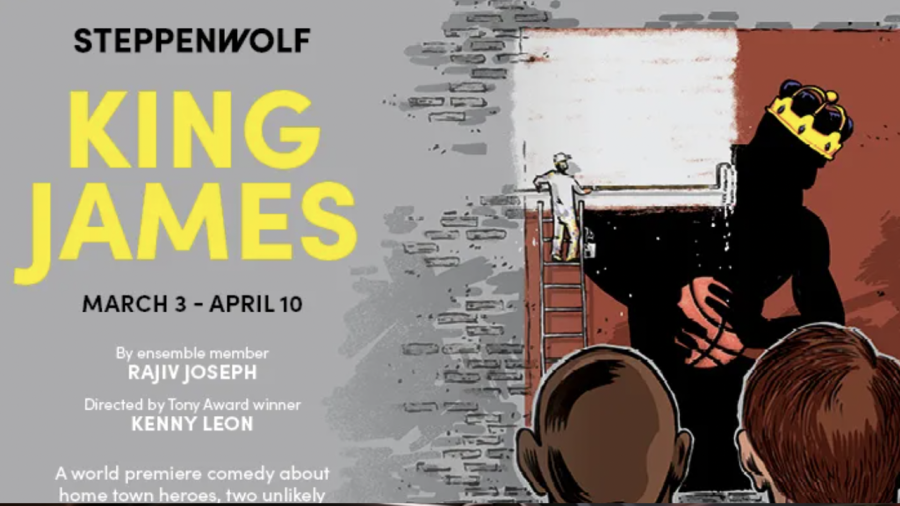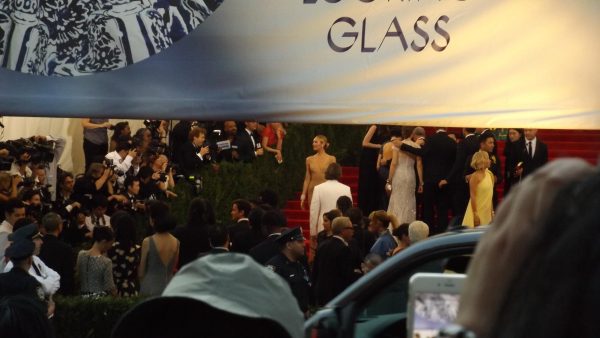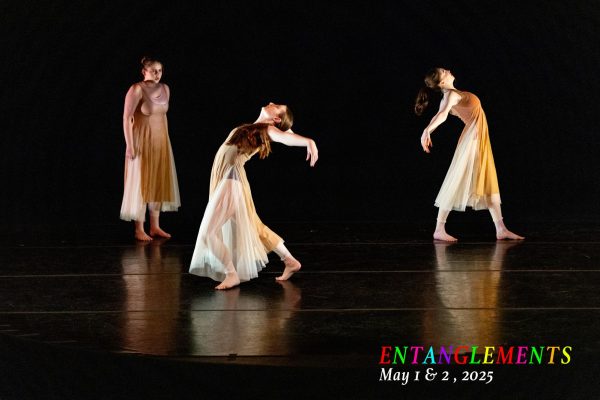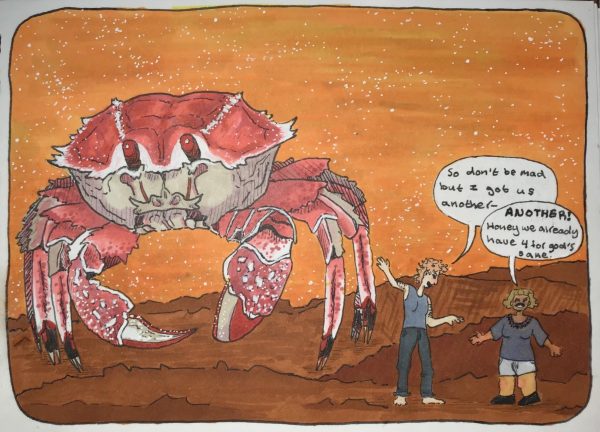King James: The Ultimate GOAT?
In early March, a young Steppenwolf Theater ensemble member and already accomplished playwright, Rajiv Joseph, did the unthinkable: He brought the King to the “Land of Jordan.”
Joseph’s sweet and deceptively deep two-hour, two-man production was produced by Steppenwolf Theater Company and Center Theater Group and ran from March 3 to April 10. King James was directed by the Tony and Obie Award-winning director Kenny Leon and featured actors Glenn Davis and Chris Perfetti as two young, avid sports fans whose friendship forms and develops over their mutual love for Cleveland sports and the all-time Cleveland sports hero: LeBron James.
The story begins the night of the 2003 NBA draft when the long-suffering Cleveland Cavaliers franchise wins the NBA Draft Lottery and selects home-town high school star LeBron Raymone James with the number one pick. The plot reaches its climax just before July 7, 2010, when unrestricted free agent James announces his decision to “take [his] talents to South Beach” and sign with the Miami Heat in a live ESPN broadcast titled “The Decision.” It concludes in 2016 with the day of the Cavaliers’ Championship Parade in Cleveland, after the King has returned to his hometown and secured Cleveland its first NBA title. All that, however, is merely historical background for those of you who live in a hole (or, if you aren’t like me, and haven’t grown up with two parents from Cleveland!).
You don’t need to love Cleveland, James, basketball, or even sports to love this play. None of that is really what this story is about. It is a tale about friendship. It is about how two men from different backgrounds, with different hopes and dreams, can come together in friendship. Much of the fandom and sports angst becomes a metaphor for all kinds of conflict and struggle these two men need to navigate, as well as how they look to each other for the support they need. As with most friendships, sometimes people are selfish, sometimes they have a hard time expressing themselves, and sometimes they are ignorant or impulsive. Yet, like the sports figures they worship, they are just trying to do the best they can with the tools they have to make it to the next level and spread some joy along the way.
While only two actors graced the stage for the entire production, there was not a moment when the action felt slow or the story dragged. The dialogue was funny and insightful. As the men’s friendship endured challenges, the action became both suspenseful and emotional. Particularly engaging and thought-provoking were the discussions prompted by the men’s differing views regarding James’ choice to leave Cleveland for Miami in the first place. Through their conversations, the men—one white and one black—reflected the common Cleveland sentiment at the time that James had exhibited disloyalty and selfishness. Their debates raised the question of whether the same degree of backlash would be provoked by a White athlete. They discuss the vitriol behind the jersey burning following James’ departure and, of course, the amnesia-level forgiveness upon James’ return to Cleveland. These are questions still debated by Clevelanders even today, so I’m told.
While friendship is its primary theme, the play also investigates the often bizarre passion and fervor that many of us have for our sports teams. Rather than painting fandom as an obsessive distraction, however, it places the human connection at the center of such activities. This highlighted the feel-good theme of togetherness and emphasized the ways in which the ups and downs of life, as in sports, are better when shared. King James was the perfect balm to soothe the pains of COVID (which itself had delayed the production for some time). Whether it resolved all disputes about the GOAT and where he truly belongs is up to you.

Mia Kotler ('25) is thrilled to be one of the Editors-in-Chief for The Forum this year. She is a passionate writer who enjoys expressing her views and...
























































